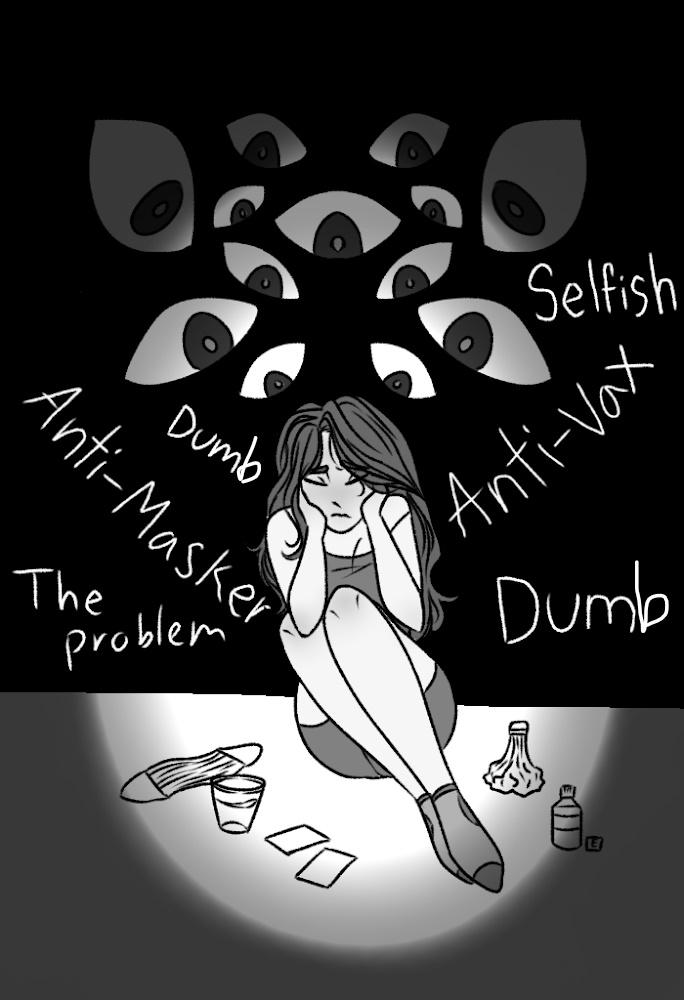By Kaiya Suehiro | Staff Writer

We need to eliminate the stigma around getting COVID-19, because the virus is not going away any time soon. Most people do not realize how harmful stereotypes that are placed on people who test positive for the virus can be.
According to Johns Hopkins University, one in five people in the United States have been infected with COVID-19. The study also found that one in four Americans associate shame with contracting COVID-19. It is likely that we will have to live with the virus like how we have learned to deal with endemic diseases like the flu.
There has always been shame surrounding transmissible diseases. HIV stigma is still common even though the stereotypes they are based upon have been proven false. Similarly, harmful stereotypes are also being formed around people who have gotten COVID-19.
At the beginning of the pandemic, COVID-19 stigma was mainly targeted at Asian citizens because some people unfairly placed all of the blame for the pandemic on China. Today, if a person tests positive for the virus, many will jump to conclusions and assume the person’s political views, religious views, or vaccination status. Stereotypes might be used to attack the person with the virus or the groups that they belong to.
This discrimination and negativity can have seriously dangerous consequences. The embarrassment of possibly testing positive may discourage some from testing if they exhibit symptoms. People may not seek lifesaving health care or treatment should they need to, but shame should not get in the way of medical care.
Someone might choose to purposefully hide that they are sick in order to avoid humiliation. By neglecting to tell the people that they had close contact with, others would be put in danger and at risk for the virus themselves.
Some believe that others who test positive for COVID-19 are less intelligent than those who have not gotten sick. Covid-positive people are labeled as riskier, less sanitary, and that they lack concern and consideration for the health of others around them.
These assumptions are generally false. Individuals who are vaccinated, cautious, and wear masks still have the ability to contract the virus. Some people have jobs that put them at higher risk for exposure, such as when one works in the health profession.
“Omicron, with its extraordinary, unprecedented degree of efficiency of transmissibility, will ultimately find just about everybody,” stated scientist and immunologist Anthony Fauci in a public address.
If a person does not already feel guilty about testing positive, they may also be a target for bullying or harassment.
Dr. Eric Ascher, a family medicine physician, said in an interview with USA Today, “If you are double vaccinated and received your booster, and you wear a proper mask in indoor public facilities or on public transportation and you still come down with COVID, you should not feel shameful or like a failure.”
An individual who tests positive should report their case and notify people who they came into close contact with. If a person is aware that they came into contact with the virus, they should not blame the person or use negative language when speaking about it.
People should have more sympathy and realize that the virus can still affect those who are cautious. We should be more understanding of people who test positive for COVID-19. They are already struggling enough without the added stress of blame placed on them.
The stigma around the virus is based around fear and harmful stereotypes. It forces guilt upon those who contract COVID-19 and prompts discrimination, even after they recover from the virus, and discourages people from getting the care they need. Destigmatizing the virus will lessen some of the distress and hate associated with the pandemic.






